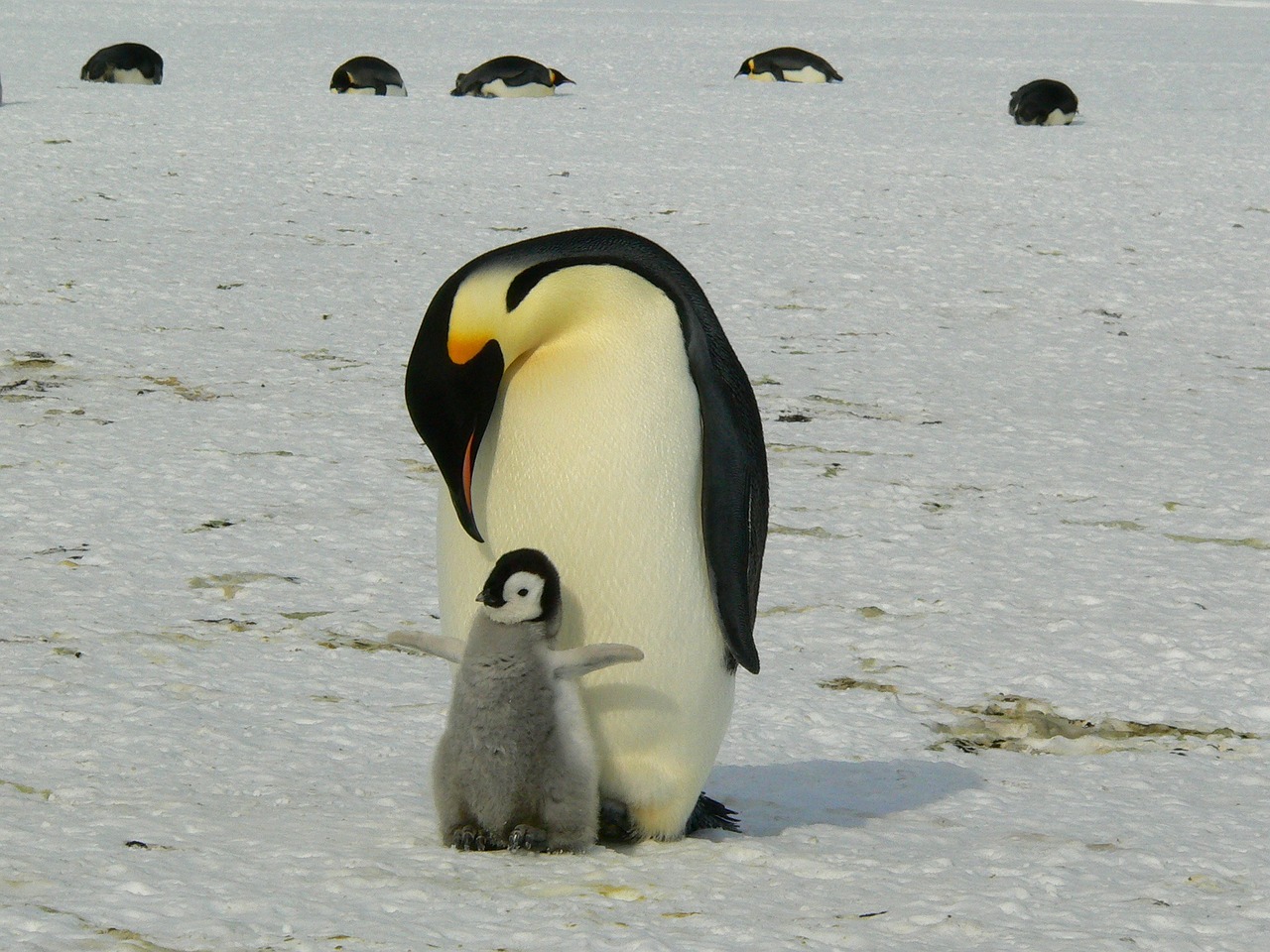News release
From:
Climate change: Emperor penguin breeding fails due to Antarctic sea ice loss
Four out of five emperor penguin colonies in the Bellingshausen Sea, Antarctica, saw no chicks survive to fledge successfully in the spring of 2022, reports a study published in Communications Earth & Environment. The study suggests that this complete breeding failure is a direct consequence of the unprecedented loss of sea ice recorded in the region in recent years due to climate change.
Emperor penguin (Aptenodytes forsteri) colonies generally need stable ice attached to the land between April and January to ensure successful breeding and moulting. Any change in the extent of the Antarctic sea ice can affect their reproduction as chicks do not develop waterproof feathers until fledging.
Peter Fretwell and colleagues used satellite images covering the period between 2018 and 2022 to monitor the presence of emperor penguins during the breeding season at five colonies in the Bellingshausen Sea in Antarctica. The colonies are known as Rothschild Island, Verdi Inlet, Smyley Island, Bryan Coast, and Pfrogner Point and range in size from around 630 pairs on Rothschild Island to around 3,500 pairs on Smyley Island.
The authors found that four colonies — Verdi Inlet, Smyley Island, Bryant Coast, and Pfrogner Point —experienced total reproductive failure and were abandoned in the period after the sea ice broke up before the start of the fledging period in December 2022. The authors indicate that it is unlikely that any chicks survived to successfully fledge at these colonies. However, satellite images suggest that chicks did fledge successfully at Rothschild Island colony. The authors note that of the five colonies only Bryant Coast colony had been identified as having experienced total breeding failure prior to 2022.
This is the first regional breeding failure of emperor penguins observed in the past 13 years in the region, and among the first evidence of the direct impact of Antarctic warming on the viability of emperor penguin populations.



 New Zealand; International
New Zealand; International



